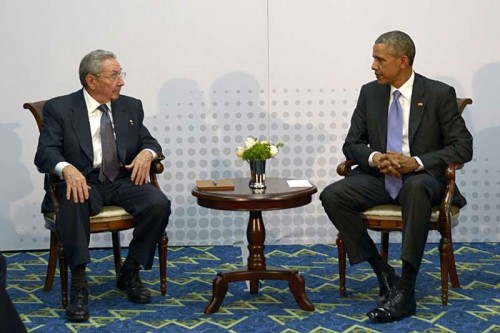
US President Barack Obama will decide soon on whether or not to remove Cuba from the list of states that sponsor terrorism, a move that would allow Washington to lift a series of sanctions on the island, the White House said.
“Expect a decision in the coming days,” spokesperson Josh Earnest told reporters at the White House daily briefing.
Cuba demands that it be removed from the list, on which it has appeared every year since 1982 and which includes the imposition of sanctions such as prohibiting weapons sales and economic aid.
Although the Cuban government does not consider its removal from the list to be a precondition for resuming diplomatic relations with the US and reopening embassies in their respective capitals, it has made clear that it feels removing it is very important.
Currently, only Cuba, Iran, Sudan and Syria are on the list.
The reasons that Washington has kept Cuba on the list to date include its alleged welcoming of members of the Basque terrorist group ETA and Colombia’s FARC rebel group, as well as certain fugitives from the US justice.
To remove Cuba from the list, the US must come to the conclusion that over the last six months Havana has not been involved in providing support or assistance for international terrorist acts, US Secretary of State John Kerry said recently.
Once Obama announces his decision, he must formally notify Congress, which has 45 days to study it and, if it disagrees, lawmakers can present a bill to try and revoke the presidential order.